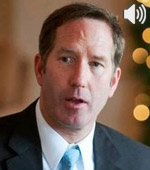Pass Free Trade Legislation, But Ignore Calls to Insert “Fair Use” Provisions That Weaken American IP Protections
We at CFIF strongly advocate both free trade and intellectual property (IP) protection. Although typically distinct policy questions, they are currently intertwined as Congress finally and fortunately moves toward passing free trade legislation.
The pending legislation rightly demands that trading partners recognize American IP rights, but that has naturally drawn fire from some of the usual suspects (e.g., Google, the Internet Association, et al.) who tend to oppose stronger IP rights because those protections tend to run contrary to their own particular business interests. Specifically, those interests seek to include copyright limitations in free trade bills, including mandatory “Fair Use” exceptions.
That would be a bad idea.
Among other problems, those voices misstate domestic law in suggesting that “generally, an Internet company in the U.S. is not held liable for the conduct or content of third parties who use its platform.” While existing law provides a level of immunity for Internet companies, such immunity is limited and does not excuse violations in numerous circumstances, including: (1) when the interactive computer service materially contributes to the illegal content; (2) when the interactive computer service itself engages in fraud/misrepresentation; (3) when the interactive computer service engages in, or aids and abets, criminal activity; or (4) if the illegal activity violates IP laws. Accordingly, omitting discussion of an Internet company’s liability for copyright infringement is particularly and intentionally misleading. American law regarding the liability of intermediaries is infinitely more complicated, and intermediaries may face liability under a variety of circumstances, including where they induce the infringement of third persons (the Grokster standard), and in other circumstances in which they meet the standards of contributory infringement or vicarious liability. Additionally, “safe harbors” under applicable law remain conditioned on a number of affirmative acts on the part of intermediaries, such as promptly taking action once they learn of infringing content (rather than merely upon receiving formal notice), maintaining policies with regard to repeat violators and adoption of standard technical measures designed to prevent infringement.
Thus, domestic law does not extend some blanket, general exemption from liability for Internet companies with regard to the conduct of third parties, and the scope of liability in the U.S. continues to evolve, both from a judicial standpoint and a legislative one. Furthermore, Congress is presently considering the appropriate contours of the safe harbors established in the 20-year-old DMCA, with many members expressing concerns about the levels of piracy that prevail, and the fact that “notice and takedown” has been largely ineffective in reducing piracy levels, with a particularly devastating impact on individual creators and actors who can ill afford to pursue takedowns only to have the same content immediately re-uploaded. Accordingly, it remains unclear exactly what liability regime the US should be seeking to export. But it’s absolutely clear that American interest in foreign markets remains primarily in promoting greater discipline and accountability to reduce piracy levels that deprive the US billions of dollars in earnings.
Furthermore, U.S. trade agreements already include provisions relating to exceptions and limitations. They also already recite the relevant provisions of international law that define the scope of permissible exceptions and limitations. Those binding provisions are contained in a variety of agreements, including the Berne Convention, TRIPS, the WIPO Treaties (WCT and WPPT), and each of our free trade agreements. Other nations have employed different means to achieve what they believe is a proper balance between protection and limitations, but remain they bound by the provisions of international law. A particularly wide variance exists in how common law and civil law nations approach exceptions and limitations. More specifically, courts in civil law countries are not permitted to interpret general provisions, and legal standards that require the weighing of different factors are a poor fit. As a result, legal provisions such as Fair Use are ill-suited to the jurisprudence of most countries across the globe.
Moreover, as the world’s leading producer and exporter of copyright protected materials, the U.S. maintains a tremendous economic interest in ensuring the effective protection of copyright works. While all parties strongly endorse balanced copyright protection that both protects works and provides reasonable flexibility, the biggest problem in foreign markets is lack of discipline, and not overboard protection.
It is critical that Congress passes free trade legislation currently on its agenda, and those who seek to exploit it as a device to weaken American IP protections must be rejected.

 Timothy Lee, CFIF’s Senior Vice President of Legal and Public Affairs, discusses why global warming is not the world’s greatest threat, why Vice President Joe Biden was wrong on his 2010 prediction about Iraq proving to be one of the greatest achievements of the Obama administration, and why former President George W. Bush is not to blame for ISIS.
Timothy Lee, CFIF’s Senior Vice President of Legal and Public Affairs, discusses why global warming is not the world’s greatest threat, why Vice President Joe Biden was wrong on his 2010 prediction about Iraq proving to be one of the greatest achievements of the Obama administration, and why former President George W. Bush is not to blame for ISIS.


 CFIF Freedom Line Blog RSS Feed
CFIF Freedom Line Blog RSS Feed CFIF on Twitter
CFIF on Twitter CFIF on YouTube
CFIF on YouTube